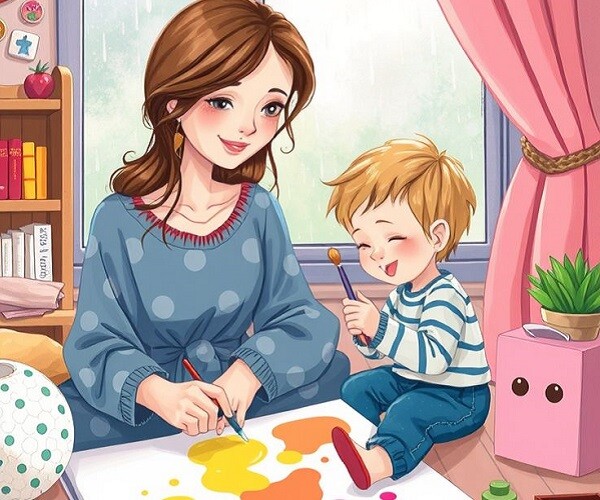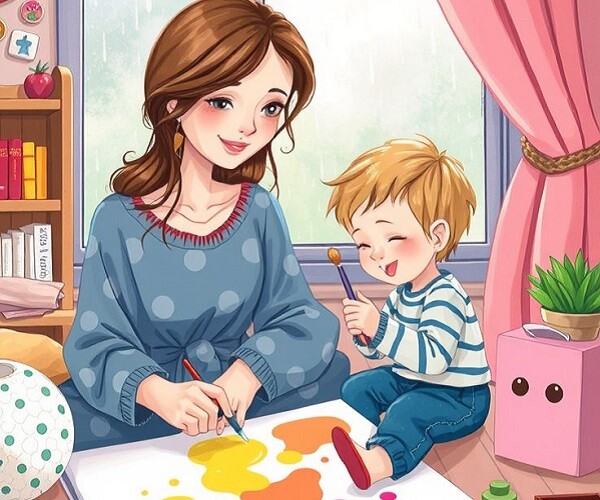In parenting, some parents may resort to strict control methods, believing that rules and boundaries will guide their children towards proper development.
However, excessive strictness can lead to unintended consequences. Children may feel pressured, restricted, and uncomfortable expressing themselves.
A psychologist outlines three common behaviors exhibited by parents that can lead to their children becoming distant.

Verbal abuse is a common form of discipline employed by parents. However, this approach can leave children feeling disoriented and overwhelmed as their attention becomes focused on the harsh words being directed at them.
A Harvard Medical School professor’s decade-long research revealed that parental verbal abuse increases stress hormone levels in children, leading to changes in brain structure. This includes a reduction in the size of the hippocampus, impacting memory, and altering their personalities and cognitive abilities.
Psychological studies have also found that constant verbal abuse, including ridicule, insults, and angry outbursts, can shape children’s personalities towards negativity, low self-esteem, introversion, melancholy, and social avoidance.
Emphasizing the critical period of a child’s development, Maria Montessori, an Italian physician and educator, asserted that the first three years of a child’s life are the most influential. Any impact during this period could have lifelong consequences.

Verbal Abuse: Parents who frequently discipline their children through verbal abuse can cause disorientation and overwhelm them as their attention becomes fixated on the harsh words.
Public criticism can be detrimental to a child’s psychological development. While some believe that criticizing children in front of others will leave a lasting impression, discouraging future mistakes, it often hurts their self-esteem.
Children have self-respect, and public criticism can trigger rebellious tendencies, making them more defiant and stubborn. Instead of learning from their mistakes, they may feel pressured and ashamed, hindering their willingness to share future challenges.

Public Criticism: Public criticism can trigger rebellious tendencies, making children more defiant and stubborn, hindering their willingness to learn from mistakes.
Vasily Sukhomlinsky, a renowned educator, emphasized the importance of protecting children’s self-esteem, stating, “The child’s personality is the most sensitive corner of their soul. Protecting their self-respect is to protect their inner strength.”
Parents should seek more positive disciplinary methods. Instead of criticism, offer constructive feedback, encouraging children to recognize their mistakes and seek solutions.
For instance, if a child struggles with a new skill, a parent could say, “I see you’re putting in a lot of effort, and perhaps we can try a different approach to make it easier.”
This approach empowers children, encouraging them to actively seek solutions.

Constant Criticism: Constant criticism can make children feel like they can never meet their parents’ expectations, leading to low self-esteem and a lack of initiative.
Constant criticism can make children feel like they can never meet their parents’ expectations, leading to low self-esteem and a lack of initiative.
Children who constantly face denial from their parents tend to develop low self-esteem and a lack of initiative. When parents fail to acknowledge their efforts, achievements, or emotions, children internalize a sense of unworthiness and feel unloved and unaccepted.
Growing up in an environment of constant denial can make children feel that their efforts are never good enough. This can lead to passivity, where they readily accept others’ opinions and decisions instead of confidently expressing their own views and choices.
Psychologists advise parents to provide encouragement and recognition for their children’s efforts, even if the outcomes are imperfect. A simple acknowledgment, such as “I noticed your hard work on this,” can significantly boost their self-esteem.
When children feel valued and appreciated, they develop confidence and initiative in their lives.



































